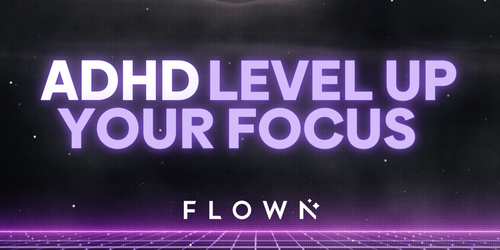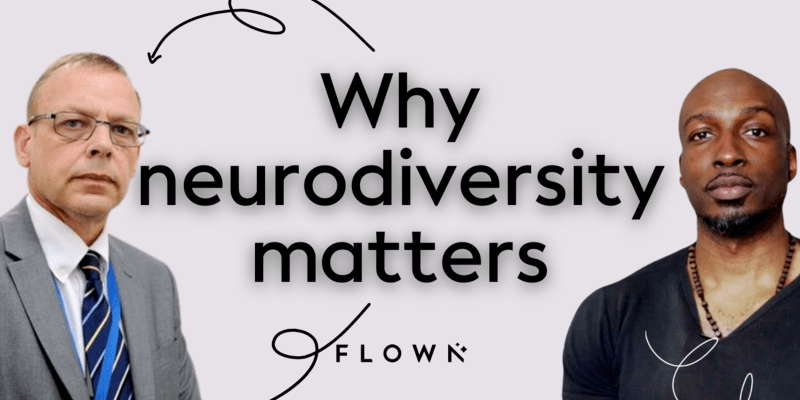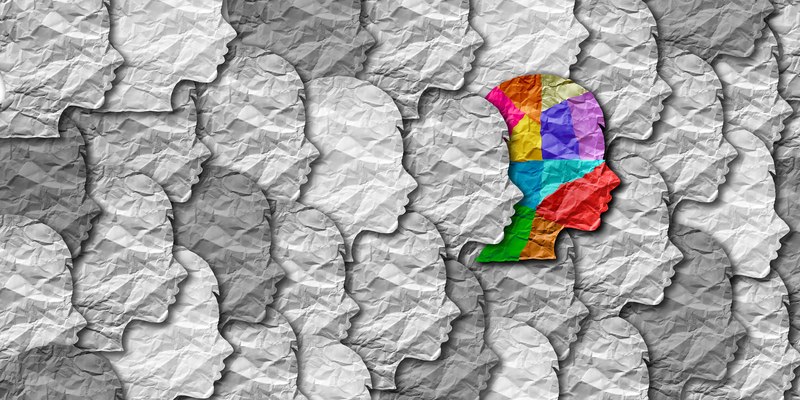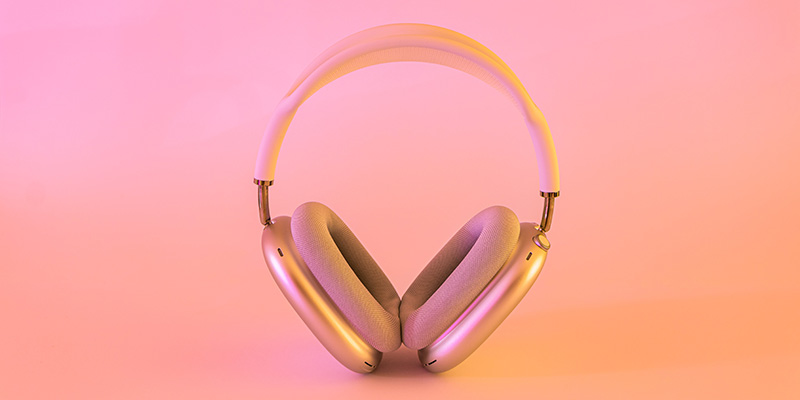Adderall Shortage: 7 Ways to Manage ADHD Without Medication


By Eleanor Hope-Jones
•
Oct 20, 2023
The Adderall shortage continues to disrupt the lives of many ADHD adults - with drug shortages in the US being especially impacted.
With medications running low, finding alternative strategies is crucial. Discover seven expert-backed ways to manage ADHD symptoms—even without meds.
🗨️Keep reading to learn more about the Adderall shortage or skip down to FLOWN’s tips on navigating your medication during the shortage.
Understanding the Adderall shortage
Is there still an Adderall and ADHD medication shortage?
As of December 2024, there is still an Adderall shortage in the USA, and a growing shortage in the UK with the main medicines affected being Methylphenidate, Lisdexamfetamine, Guanfacine and Atomoxetine.
Adderall is made up of two kinds of central nervous stimulants: amphetamine and dextroamphetamine. Because the shortage is a continuing problem, other kinds of ADHD medication, like Methylphenidate alternatives, are also becoming harder to get a hold of.
Why is there an Adderall shortage?
The driving force is thought to be the boom in ADHD diagnoses during the pandemic meaning there’s not enough supply to keep up with demand.
Over the pandemic, an unprecedented number of people were diagnosed with ADHD as working and studying from home took away the guardrails people relied on to focus. The government also changed laws around who could diagnose and prescribe medication.
For the first time, technology-led health companies (often referred to as telehealth companies) could prescribe ADHD medication over the internet via video consultation. Lots of these telehealth companies started advertising aggressively on social media, diagnosing ADHD frequently and prescribing stimulant medications freely. This was a factor that led to the ADHD medication shortage.
This increase in access to diagnosis and treatment was arguably a massive leap forward for ADHD healthcare. But telehealth providers are now under investigation for pressuring clinicians to prescribe drugs unnecessarily.
As ADHD medication is a controlled substance the U.S. DEA (Drug Enforcement Agency) allocates the amount pharmaceutical companies are allowed to create based on the needs of previous years. After the pandemic-fuelled ADHD diagnosis boom, there is a huge discrepancy between expected quotas and real-life needs.
Certain pharmaceutical companies have asked the DEA to increase the quota, and that has been approved in some cases. But on the whole, the DEA is being cautious. This is because it's tricky to measure just how large a demand increase there is: there is no across-the-board tracking system for ADHD diagnosis so no one knows exactly how many people have been diagnosed.
But some journalists are also questioning whether the government is being overly cautious in the wake of telehealth companies running amok with the system during the pandemic years. The combination of these factors has resulted in an Adderall shortage.
The Impact of the ADHD medication shortage
At first, the shortage affected the immediate-release form of Adderall (Adderall IR), but as doctors offered patients alternatives such as extended-release Adderall (Adderall XR) other forms also began to become less readily available. The shortage is now affecting the spectrum of ADHD medication from Ritalin to Concerta and Vyvanse.
How the Adderall shortage affects ADHD patients
ADHD medication is effective as soon as it crosses the blood-brain barrier, which normally takes around 45-60 minutes following ingestion. So when people with ADHD who are reliant on their medication can’t access it, the effects are immediate.
If ADHD adults don’t take their medication for even one day they will immediately see an increase in their ADHD symptoms. They may be less effective in their work, academic or personal lives, and some people have even reported losing their jobs as a result of consistent medication shortages.
Why do ADHD medications work so well?
Underneath the buzzing movement and floaty distraction of ADHD symptoms the core neurological difference is a dysregulation of dopamine. People with ADHD do not get the typical dopamine reward for completing tasks that neurotypical people do.
This makes people with ADHD wired to seek out things that’ll give them an immediate dopamine hit, in the form of things they find interesting or fun. Modern ADHD medication uses stimulant drugs to treat adhd and replace this lack of internally released dopamine.
When people with ADHD get the right ADHD medication prescriptions at the right dose, the results can feel magical. For lots of people with ADHD, that magical life-changing drug was Adderall.
Alternative ADHD Medications
An alternative to Adderall is Ritalin - both medications are brand types of ADHD stimulant medication, but they are different kinds of drugs. The basic form of Ritalin is methylphenidate whilst the basic form of Adderall is amphetamine and dextroamphetamine salts.
They both work by increasing neurotransmitters of norepinephrine and dopamine in your brain, but the key difference is Ritalin tends to get to work more quickly so you’ll reach peak performance sooner after taking the drug.
Why is Adderall a restricted drug? And why is it so hard to get ADHD medication?
Both amphetamines and methylphenidate are Schedule II controlled substances in the US. They’re only permitted for people who have ADHD medication prescriptions. This is because they’re addictive: they can elevate mood by giving people a ‘high,’ meaning there’s the potential for people to abuse them.
The Drug Enforcement Administration (DEA) operates these drugs under a “closed system of distribution”. Those with ADHD or narcolepsy (another condition stimulants can help), are drip-fed their personal allocation on a monthly basis, from pharmacies and medical centers with set limits on how many they can buy, from producers who are only allowed to make as many drugs as the government allows.
This minimizes the risk of people without a medical need accessing the drug, or the drugs being illegally diverted at any point along the supply chain. No one has reserves of Adderall, which is why the shortage is so difficult to manage.
7 Ways to manage ADHD during the Adderall shortage
If you’re worried about your own access to your standard ADHD medication there are two things you need to think about.
Alternative routes to ADHD medicinal support
Do some research and make a plan for what to do if you run low on your medication and your usual Adderall prescriptions supplier no longer has them in stock. Try and do this in advance, as when the time comes you may have to make financial and lifestyle decisions quickly. This might look like knowing you’ll take a day off work to drive to alternate potential far-away pharmacies to see if they have what you need.
If you’re already out of your medication try and set aside some time to reflect on how it’s impacting you and whether you want to seek out other forms of ADHD medicinal support, or focus on non-medicinal solutions. We know it can be tricky to focus if you don’t have access to your meds, so consider asking a partner, friend or mentor to help you.
1. Work with your doctor to find an alternative medicine
Lots of medical professionals for whom Adderall is no longer available have switched their patients to alternative forms of ADHD medication already. This may not be as effective for you as your preferred form of medication, but it may still help you manage your symptoms.
2. Talk to your doctor about rationing your medication
Some people with ADHD have chosen to use their medication during the weekday and not at weekends. This may be disruptive to your routine so make sure you discuss it with a professional and fully consider the implications before going ahead.
To minimize the disruption to your routine, and not end up in a position where you’re forgetting your pills, take multivitamins on the days you skip your standard medication.
🗨️ Please note:
This article is informative only and should not be used as a replacement for professional medical advice or treatment. Seek the advice of a doctor or qualified health professional before making decisions about your medication.
3. Familiarize yourself with local pharmacies
Smaller pharmacies in your area may still have your prescription in stock or receive medication in a different rhythm to larger chains like Walgreens. Take some time to research where’s closest to you and reach out to them to see what they have in stock.
4. Check what your insurance policy covers and get in touch with them
After checking your policy you may find that only certain types of medication are covered. For example, lots of policies only cover the cheaper non-branded version of a product, which is often what goes out of stock earlier.
Some people have found success in petitioning their insurance provider to cover more expensive kinds of medication during the shortage. You’ll need to find out whether your insurance can cover this, and decide whether you’re able to budget for the more expensive forms of your medication or rely on non-medicinal options.
Consider non-medicinal ADHD strategies
You may be feeling panicky at the thought of going without your ADHD medication in the wake of an Adderall shortage, and it’s normal to worry about massive unexpected lifestyle changes. Reflect on what non-medicinal habits and routines have helped you in the past, and research activities that help ADHD adults. Consider how you’ll make the transition yourself, and start experimenting with the following…
6. Try body doubling to stay focused
Body doubling is the practice of using another human being who focuses on their work as an anchor whilst you focus on a tricky task. Body doubling for ADHD was born out of ADHD support groups, some individuals find the experience life-changing as it allows them to remain focused.
All you need to do is try FLOWN's virtual body doubling sessions and get productive!
6. Exercise directly before you need to focus
As someone with ADHD you may well be sick and tired of being told to exercise, but there’s no doubt that it helps to reduce ADHD symptoms. Moderate to intense exercise actually causes the same neurochemicals to be released as ADHD medications.
Consider how you can incorporate daily exercise into your routine to get the same increase in dopamine you may usually rely on your medication for
7. Find places of community that encourage self-compassion
For lots of people with ADHD, especially those diagnosed later in life, their struggle to focus and impulsivity can be a source of shame and even depression. After going through the process of getting a diagnosis and finding a medication that works for you, it’s okay to be upset to have lost that even temporarily.
Remember to be compassionate towards yourself if you struggle to function the way you normally do with your medication. Plan for end-of-day burnout, and realistically evaluate your expectations of yourself whilst the shortage is ongoing. If you’re in a supportive workplace or social group consider whether sharing your situation so others know what you’re going through would be helpful.
If that’s not an option then seek out environments and communities of people who do understand what you’re going through and can help you find self-compassion.
When will Adderall be available again?
The ADHD medication shortage may continue for some time, but you can take control by exploring new focus strategies. Join FLOWN’s expert-led body doubling sessions today and find your focus—even without medication.
In the meantime, if you need more tips and advice for ADHD brains, check out our ADHD in the workplace guide - or understand how FLOWN ac works in our science behind FLOWN.
This article is informative only and should not be used as a replacement for professional medical advice or treatment. Seek the advice of a doctor or qualified health professional before making decisions about your medication.
All the information in this article is accurate as of 17th December 2024.
















